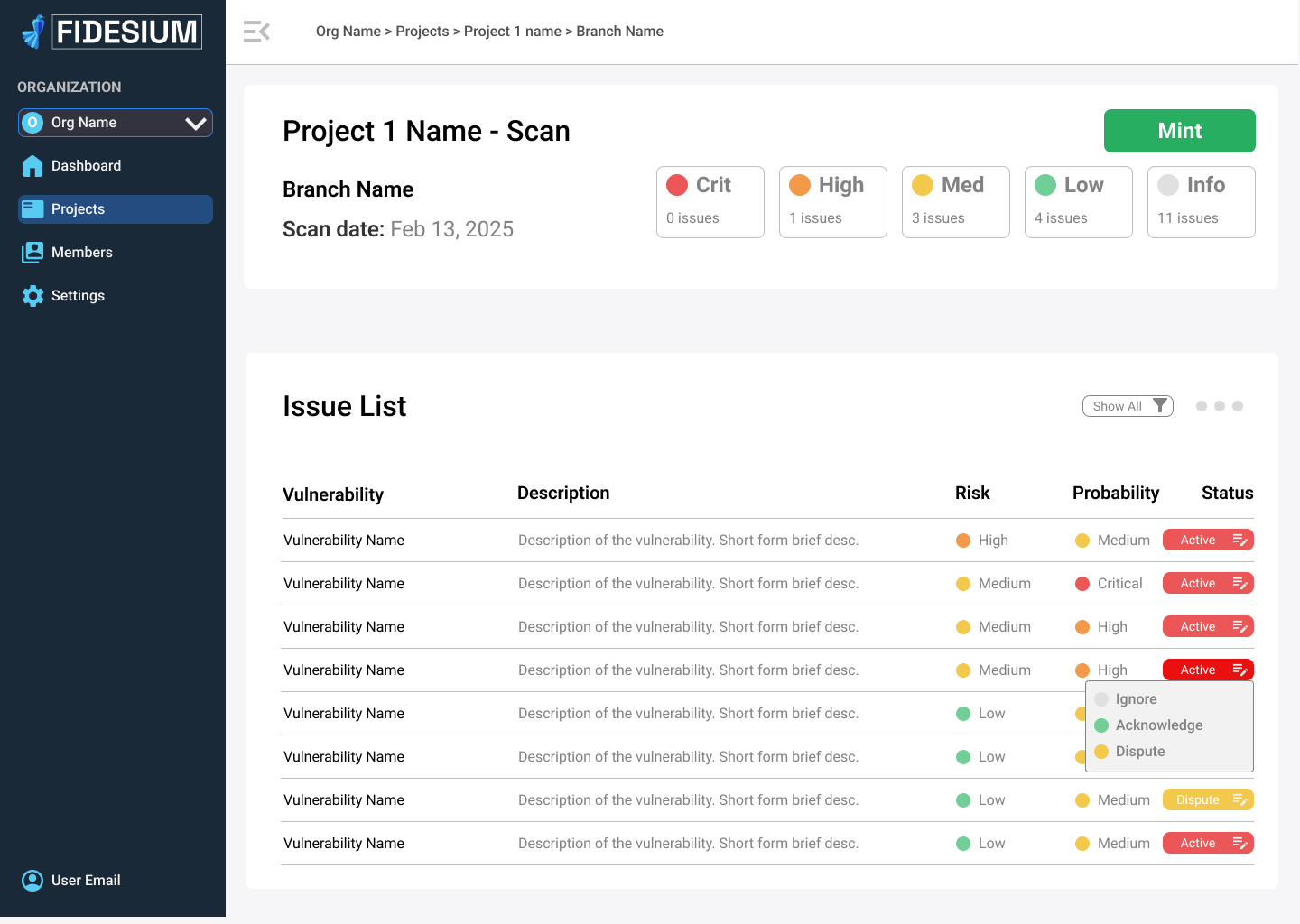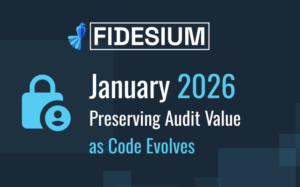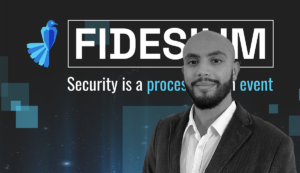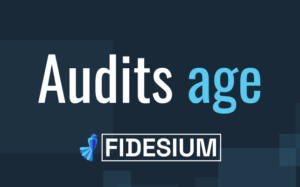How PB&J Secured a Web3 Game in 1 Minute – and Launched in Under 30 Days
In Web3, one missed vulnerability can erase months of work and millions in value – but one minute can save it all.
Web3 leaders don’t just ship fast – they ship secure.
PB&J Consulting joined that club when they used Fidesium’s automated audit tooling to take Trivi Agent from MVP to live launch in under a month, catching a critical flaw before it could cause damage – and they did it for under $1,200.
Intro: Security That Speeds Up, Not Slows Down
In Web3, security isn’t a checkbox – it’s a living process.
Done right, it accelerates delivery while reducing risk.
At Fidesium, we build proprietary audit tooling that plugs into your existing dev cycle, catching vulnerabilities early so you can fix them fast and ship without delay.
This case study shows how PB&J Consulting used Fidesium to launch their blockchain-powered trivia game, Trivi Agent, in less than a month – avoiding critical vulnerabilities along the way.
INSERT BANNER WITH FOLLOWING TEXT: Trusted by developers who’ve seen enough $30–70k re-audits to know better, Fidesium integrates into the dev process to catch issues before they snowball into costly security debt.
About PB&J Consulting
PB&J Consulting is a hands-on Web3 advisory firm, known for embedding directly with clients to deliver results. Their services include:
- Tokenomics & Architecture Design – Governance, utility, and long-term alignment.
- Unified Launch Services – Coordinated token launches with marketing, investor, and technical teams.
- Treasury Management – On-chain liquidity and market-making strategies.
- Strategic Partnerships – Leveraging their network for collaborations and investment.
The Challenges Most Teams Face Before Launch
Most smart contract teams face three problems before launch:
- Re-audit costs $30–70k after even minor code changes.
- Long queues for manual auditors.
- Risk gaps when code changes between audits
PB&J wanted none of that.
About Trivi Agent
Trivi Agent is a blockchain-native, token-powered PVP trivia game. With Fidesium’s automated audits, PB&J went from MVP to production in under 30 days – for less than $1,200 – while avoiding a potentially game-breaking security flaw.
The Vulnerability We Found
While testing Trivi Agent, our system detected an unbounded loop – the kind of flaw that can:
- Blow past the gas limit.
- Crash gameplay under high traffic.
- Open the door to DDoS and griefing attacks.
In less than a minute, Fidesium flagged it and recommended:
- Loop pagination.
- Function extraction.
- Pull-over-push model.
How Fidesium Detected It in Under a Minute
- AST Analysis – Break down contract into logical nodes.
- Loop Detection – Identify loops and check if they’re bounded.
- Protection Validation – Require/assert calls, early returns, try/catch, custom modifiers.
Expensive Operation Scan – Contract calls, struct assignments, nested calls, mapping updates.
Abstract Interpretation – Track variable assignments in complex scenarios.
Result: Clear, actionable report delivered via dashboard with AI-generated recommendations – easy for PB&J’s team to review and act on immediately.
Why This Works
Instead of vague “AI magic,” our process is grounded in proven computer science methods – reducing false positives and producing consistent results that devs can trust.
From button press to full audit report in under 5 minutes.
- Built on mathematically proven analysis methods, not just AI guesswork.
- Low false positives and consistent results.
- End-to-end process: From button press to full audit in <5 minutes.
- Cost: <$1,200, compared to $30–70k for traditional audits.
Yes, we also offer manual audits (charged separately). But most projects don’t need one to start shipping securely.
The Next Game-Changing Web3 Project Could Be Yours
Don’t wait for the “We got hacked” post. Start integrating continuous security now.
📅 Book your Fidesium demo today → LINK / BUTTON
Key Takeaways
- Speed + Security are possible – if security is built into the dev cycle.
- Continuous security prevents “technical debt” in smart contract safety.
- Automated audits can match (and often exceed) traditional audits in speed, coverage, and cost-effectiveness.




